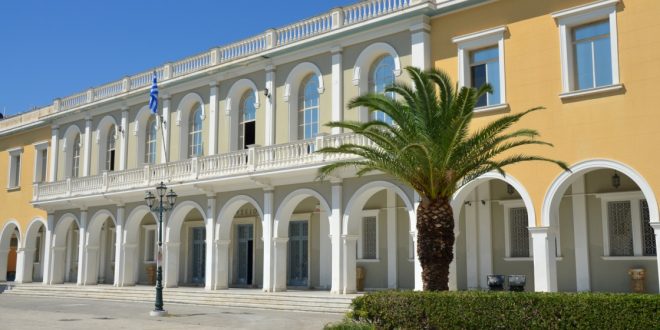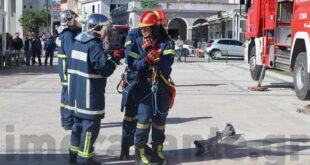
February 6th 1778
Italian poet and novelist with Greek origin. With his work he expressed the patriotic national feelings of the Italians during the turbulent period of the French Revolution, the Napoleonic Wars and the return of the Austrians to northern Italy. His poems are among the masterpieces of Italian literature.
Ugo Foscolo was born on February 6, 1778 in Zakynthos, which was at the time under the control of Venice. His baptismal name was Niccolò, which was later changed to Ugo. His father was the Venetian doctor Andrea Foscolo (Andrea Foscolo), who was born in Corfu. His mother was the Zakynthian Diamantina Spathi.
His early life
He lived for a time, during his childhood, in Spalato (present-day Split, Croatia), where his father served as hospital manager. After the death of his father in 1788, the family returned to Zakynthos, where he remained until 1794, when he settled in Venice. His teacher in Zakynthos was the poet Antonios Martelaos, who instilled in him the love for Greece, which Foskolos maintained until the end of his life.
While in Venice, he attended a Jesuit school and studied classical letters and rhetoric. There he met the literary circles, where he fell in love with the countess Isabella Theotoki Albrichi, who starred in these circles. At the age of 19 he wrote the tragedy “Thiestis”, which was staged with great success in a theater in Venice.
What influenced him
At first he felt great admiration for Napoleon and when the latter overthrew the Venetian oligarchy, Foskolos wrote the ode “To the Liberator Bonaparte” (“A Bonaparte liberatore”, 1797). He was soon disappointed, however, when Napoleon ceded Venice to the Austrians with the Treaty of Campo Formio (October 17, 1797). He boldly denounced this transaction in his novel The Last Letters of James Ortiz (“The Ultimate Letters of Jacopo Ortis”, 1798).
However, when the Austrians and Russians invaded Italy in 1799, Foskolos and other Italian patriots fought on the side of the French. When the battle of Marengo ended in (June 14, 1800), he was named captain of the Italian division of the French army.
Later life
After his retirement, he worked for a while in various positions in Milan, Bologna and Florence, where at the same time he lived an intense and somewhat relaxed life. His reaction to the Battle of Trafalgar (October 21, 1805) was expressed in a eulogy by Nelson, which he included in his masterpiece The Tombs (I sepolcri, 1807). This inspired the Rizorgimento movement, for Italian unification, 1815-1871) and is still very dear to the Italian public.
1807, after a short stay in France, he returned to Italy and in 1808 was appointed professor of Rhetoric at the University of Pavia. At the end of the year the position was abolished and Foskolos went to Milan. He was again considered a suspect due to some of his satirical references to Napoleon in the tragedy of “Ajace” (“Ajace”, 1811). 1812 saw him settle in Florence, where he wrote much of his famous poem “The Graces” (“Le Grazie”) , which remained unfinished. In 1813 he returned to Milan.
A life in exile
After the fall of Napoleon, Foskolos refused to serve the Austrians. He fled in exile to Switzerland and in 1816 to England, with his friend Andreas Calvo. As an Italian patriot, he was warmly welcomed by liberal circles in London. Eventually, however, his difficult character and prodigal life alienated him from many of his English friends. To make a living, he taught courses and collaborated with magazines, where he published important articles on Italian literature.
In 1824, in a letter to Alexandros Mavrokordatos, written in Greek, he expressed the desire to return to revolutionary Greece. However, his state of health was constantly deteriorating due to deprivation and hardship and it was not possible for him to fulfill his wish.
Hugo Foskolos died in London on September 10, 1827, at the age of 49. In 1871 his body was transported to Florence and buried in the Basilica of the Holy Cross, next to the tombs of prominent Italians such as Michael Angelos, Machiavelli and Galileo. In 1927 the centenary of the poet was celebrated in Zakynthos, with the unveiling of his bust and the publication of a commemorative album.
Source Sansimera HMERA
 Zakynthos Informer Zakynthos Informer
Zakynthos Informer Zakynthos Informer





